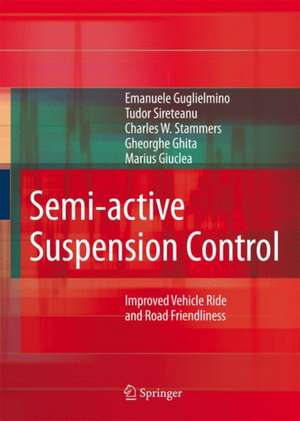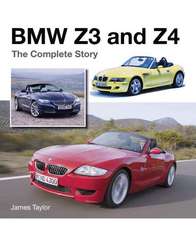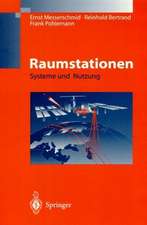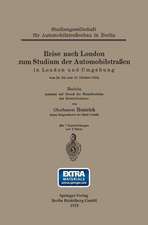Semi-active Suspension Control: Improved Vehicle Ride and Road Friendliness
Autor Emanuele Guglielmino, Tudor Sireteanu, Charles W. Stammers, Gheorghe Ghita, Marius Giucleaen Limba Engleză Hardback – 17 iul 2008
Two physically different dampers (magnetorheological and controlled-friction) are analysed from the perspectives of mechatronics and control. Ride comfort, road holding, road damage and human-body modelling are studied.
Mathematical modelling is balanced by a large and detailed section on experimental implementation, where a variety of automotive applications are described offering a well-rounded view. The implementation of control algorithms with regard to real-life engineering constraints is emphasised.
The applications described include semi-active suspensions for a saloon car, seat suspensions for vehicles not equipped with a primary suspension, and control of heavy-vehicle dynamic-tyre loads to reduce road damage and improve handling.
| Toate formatele și edițiile | Preț | Express |
|---|---|---|
| Paperback (1) | 641.20 lei 6-8 săpt. | |
| SPRINGER LONDON – 13 oct 2010 | 641.20 lei 6-8 săpt. | |
| Hardback (1) | 647.40 lei 6-8 săpt. | |
| SPRINGER LONDON – 17 iul 2008 | 647.40 lei 6-8 săpt. |
Preț: 647.40 lei
Preț vechi: 761.65 lei
-15% Nou
Puncte Express: 971
Preț estimativ în valută:
123.88€ • 132.47$ • 103.29£
123.88€ • 132.47$ • 103.29£
Carte tipărită la comandă
Livrare economică 18 aprilie-02 mai
Preluare comenzi: 021 569.72.76
Specificații
ISBN-13: 9781848002302
ISBN-10: 1848002300
Pagini: 312
Ilustrații: XVI, 294 p.
Dimensiuni: 155 x 235 x 21 mm
Greutate: 0.61 kg
Ediția:2008
Editura: SPRINGER LONDON
Colecția Springer
Locul publicării:London, United Kingdom
ISBN-10: 1848002300
Pagini: 312
Ilustrații: XVI, 294 p.
Dimensiuni: 155 x 235 x 21 mm
Greutate: 0.61 kg
Ediția:2008
Editura: SPRINGER LONDON
Colecția Springer
Locul publicării:London, United Kingdom
Public țintă
Professional/practitionerCuprins
Dampers and Vehicle Modelling.- Human Body Analysis.- Semi-active Control Algorithms.- Friction Dampers.- Magnetorheological Dampers.- Case Studies.
Recenzii
From the reviews:
"This book provides an overview of vehicle ride control employing smart semi-active damping systems. … The book can be fruitful reading for mechanical engineering students (at both undergraduate and postgraduate level) interested in vehicle dynamic, electrical and control engineering students … . It should be valuable reading for R&D and design engineers working in the automotive industry and automotive consultants. It can be of interest also to engineers, physicists and applied mathematicians working in the board area of noise and vibration control … ." (George S. Stavrakakis, Zentralblatt MATH, Vol. 1160, 2009)
"This book provides an overview of vehicle ride control employing smart semi-active damping systems. … The book can be fruitful reading for mechanical engineering students (at both undergraduate and postgraduate level) interested in vehicle dynamic, electrical and control engineering students … . It should be valuable reading for R&D and design engineers working in the automotive industry and automotive consultants. It can be of interest also to engineers, physicists and applied mathematicians working in the board area of noise and vibration control … ." (George S. Stavrakakis, Zentralblatt MATH, Vol. 1160, 2009)
Textul de pe ultima copertă
Semi-active Suspension Control provides an overview of vehicle ride control employing smart semi-active damping systems (controlled dissipative elements which only require low energy input). These systems are able to tune the amount of damping in response to measured vehicle-ride and handling indicators.
Two physically different dampers (magnetorheological and controlled-friction) are analysed from the perspectives of mechatronics and control. Ride comfort, road holding, road damage and human-body modelling (nonlinear visceral response in particular) are studied.
A multidisciplinary approach is adopted throughout the book. Sound mathematical modelling is balanced by a large and detailed section on experimental implementation, where a variety of automotive applications are described offering a well-rounded view of the application of such systems. The implementation of control algorithms with regard to real-life engineering constraints is emphasised.
The applications described include semi-active suspensions for a saloon car, seat suspensions for vehicles not equipped with a primary suspension, and control of heavy-vehicle dynamic-tyre loads to reduce road damage and improve handling.
Engineers and practitioners working in noise and vibration; automotive engineers working in vehicle design, research and development; biomechanical engineers, physicists and life-scientists interested in human-body responses to vibration; and graduate students in vehicle studies, mechanics of vibration, dynamics and control will find this book of material assistance in their work.
Two physically different dampers (magnetorheological and controlled-friction) are analysed from the perspectives of mechatronics and control. Ride comfort, road holding, road damage and human-body modelling (nonlinear visceral response in particular) are studied.
A multidisciplinary approach is adopted throughout the book. Sound mathematical modelling is balanced by a large and detailed section on experimental implementation, where a variety of automotive applications are described offering a well-rounded view of the application of such systems. The implementation of control algorithms with regard to real-life engineering constraints is emphasised.
The applications described include semi-active suspensions for a saloon car, seat suspensions for vehicles not equipped with a primary suspension, and control of heavy-vehicle dynamic-tyre loads to reduce road damage and improve handling.
Engineers and practitioners working in noise and vibration; automotive engineers working in vehicle design, research and development; biomechanical engineers, physicists and life-scientists interested in human-body responses to vibration; and graduate students in vehicle studies, mechanics of vibration, dynamics and control will find this book of material assistance in their work.
Caracteristici
Describes the control of semi-active suspension which is more effective than traditional and widely-covered passive suspension and much cheaper than very specialised active suspension Compares the behaviour of magnetorheological dampers, already on the market, with that of friction dampers still under development Shows the reader how the human body reacts to vibration and the benefits of different damping regimes










